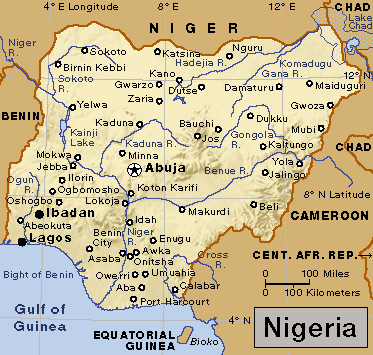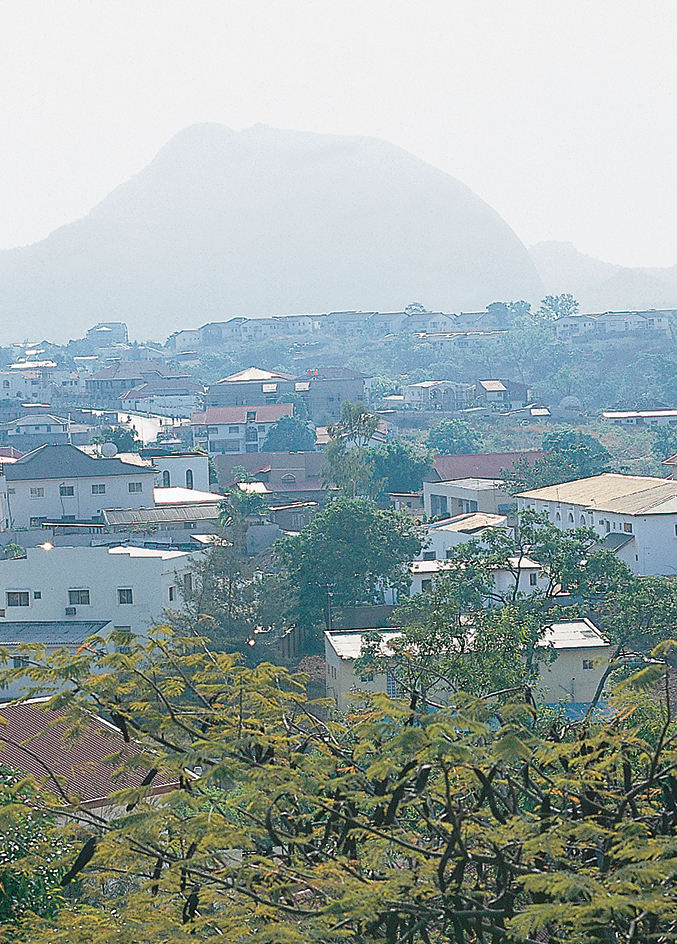Abuja, << ah BOOH jah >> (pop. 3,564,126), is the capital of Nigeria. The city lies in a hilly region in the central part of the country.

Abuja is part of the Abuja Federal Capital Territory, which has an area of about 3,100 square miles (8,000 square kilometers). The city itself covers about 100 square miles (260 square kilometers).

Abuja’s major buildings include the National Mosque and the administrative headquarters of the Economic Community of West African States. Many modern roads connect Abuja with surrounding cities and towns. The city also has a light-rail system and an international airport. Huge rock formations lying in or near the city include Aso and Zuma rocks. The official residence of the Nigerian president stands near Aso Rock and is itself nicknamed Aso Rock.
Nigeria created the capital territory in 1976 mainly because Lagos, the former capital, was overcrowded and lacked room for expansion. Construction of the new city of Abuja has occurred since the 1980’s. Abuja officially became the new capital in 1991. By the late 1990’s, all of Nigeria’s government ministries had moved their headquarters from Lagos to Abuja.
